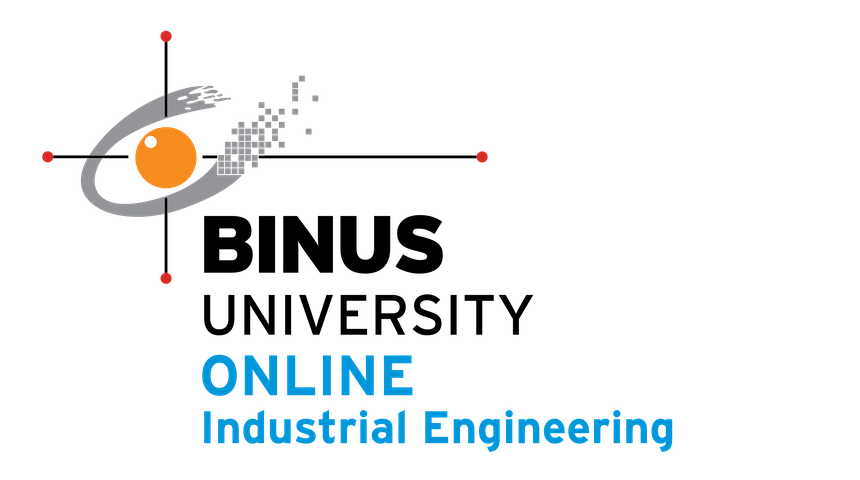About BINUS Online Industrial Engineering
Introduction
Industrial Engineering program is a branch of engineering that engages in the study of how to describe, evaluate, design, modify, control, and improve the performance of integrated systems of people, materials, and technology, viewed over time and within their relevant context. Industrial engineering is unique in its blend of fundamental topics in mathematics, physical and engineering sciences knowledge with the principles and methods of engineering analysis and design. This field identifies human being as central contributors to the inherent complexity of such systems. Globalization has opened up more doors for service industries worldwide, which leads to an increased demand for industrial engineers. The Industrial Engineering curriculum at BINUS UNIVERSITY is structured to adapt the movement of globalization and tailored to the needs of the globalized world.
Industrial Engineering program emphasizes the application of engineering fundamentals with a balanced treatment of theory, design, and experience. Computer applications are integrated throughout the curriculum. This program allows flexibility to its students to study certain topics in breadth and depth by offering Supply Chain Engineering. The specialization of Supply Chain Engineering covers how modern production and operations management techniques can respond to the pressures of the competitive global marketplace by integrating all activities in the supply chain, adding flexibility to the system and reducing production cost.
Some of the core courses require the students to not only having a full grasp of the theoretical aspects but also on how to implement them in a time study analysis. The Industrial Engineering facilities are well-equipped in the areas of engineering graphics, industrial engineering systems design, and human-machine integration. The laboratories are available for students to use during their study are but not limited to: Physics Lab, Manufacturing Process Lab, Technical Drawing Lab, Simulation Lab, Work Design, and Ergonomics Lab.
Catalog 2018 (PDF), Catalog 2019 (PDF), Catalog 2020 (PDF), Catalog 2021 (PDF), Catalog 2022 (PDF), Catalog 2023 (PDF)
Vision
Becoming a world class online learning industrial engineering study program in 2035 to fostering and empowering the society in building and serving the nation
Mision
The mission of Online Learning Program in Industrial Engineering is to contribute to the global community through the provision of world-class education by:
- Developing excellent characters through holistic approach that meets global standards
- Resolving the nation’s issues in Industrial Engineering field study through high impact research
- Fostering BINUSIAN as lifelong learners through self-enrichment in adapting to new system engineering and technology
- Empowering BINUSIAN to continuously serve society-based needs through industrial engineering applied technology
- Being the main driver to enrich the BINUS Higher Education system by using Industrial Engineering knowledge and technology
Program Objective
The objectives of the program are:
- Utilize appropriate engineering design methods and tools that are principal to work beneficially within their professions & communities
- Possess effective teamwork and leadership skills and commit to the standard of profession and ethical practice
- Continuously develop oneself to meet the evolving demands and increasing responsibilities of a successful career, to benefit the organization and society
Student Outcomes
After completing the study, graduates will have the following competencies an ability to:
- Able to identify, formulate, and solve complex engineering problems by applying principles of engineering, science, and mathematics.
- Able to apply engineering design to produce solutions that meet specified needs with consideration of public health, safety, and welfare, as well as global, cultural, social, environmental, and economic factors.
- Able to communicate effectively with a range of audiences.
- Able to recognize ethical and professional responsibilities in engineering situations and make informed judgments, which must consider the impact of engineering solutions in global, economic, environmental, and societal contexts.
- Able to function effectively on a team whose members together provide leadership, create a collaborative and inclusive environment, establish goals, plan tasks, and meet objectives..
- Able to develop and conduct appropriate experimentation, analyze and interpret data, and use engineering judgment to draw conclusions.
- Able to acquire and apply new knowledge as needed, using appropriate learning strategies.
- Able to solve problems through the multidisciplinary approach
Prospective Career of the Graduates
Industrial engineers are employed in manufacturing and service industries. Several career options for industrial engineers include, are but not limited to, the following:
- Production/Operation Engineer
- Quality Assurance Engineer
- Supply Chain Engineer
- Data Engineer
- System Analyst
- Product Spesialist
- Service Engineer
- Maintenance Engineer


Comments :